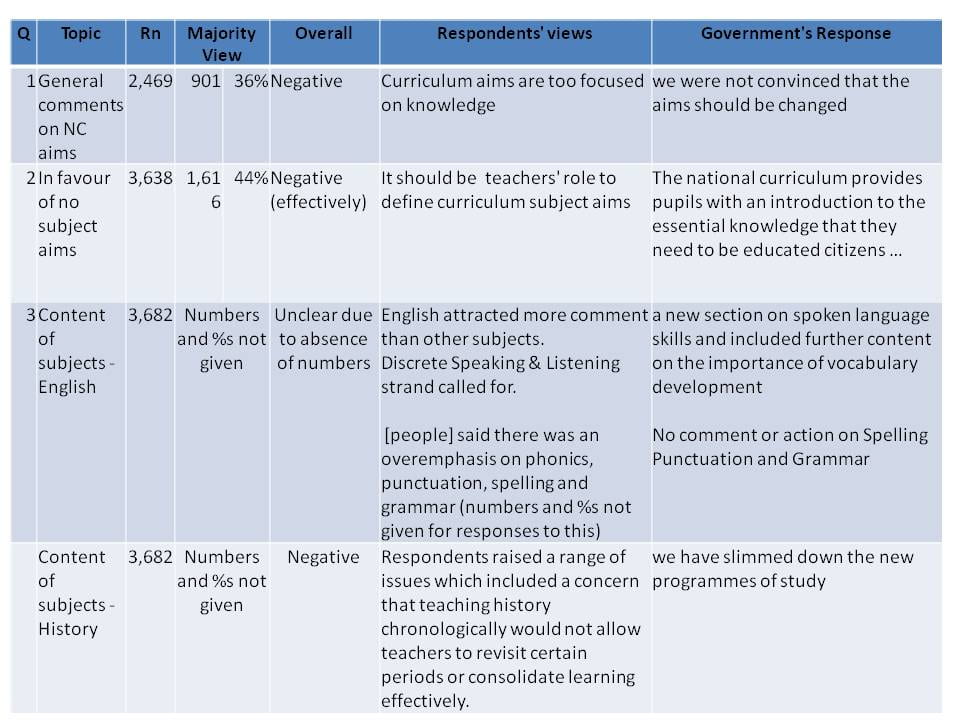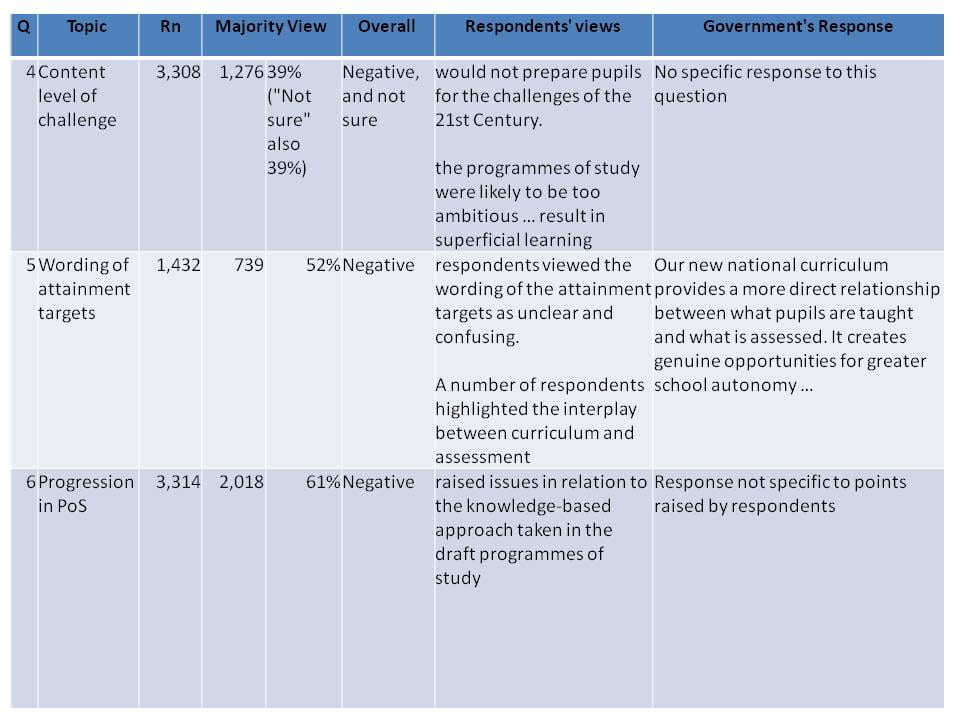Dominic Wyse
I welcome the government’s continued emphasis on primary and early years education. I also like the intention to reduce bureaucracy for teachers, and to give schools more control over the curriculum. However I am concerned that these intentions are in danger of not being met if the current proposals for the national curriculum are implemented.
Michael Gove has referred to Mathew Arnold’s well known phrase from 1869, “the best which has been thought and said in the world”. One of his most recent mentions of the phrase came in a letter in response to the report from the expert group on the national curriculum. In his letter Gove said,
I agree with your clear recommendation that we should define the aims of the curriculum. We need to set ambitious goals for our progress as a nation. And we need clear expectations for each subject. I expect those aims to embody our sense of ambition, a love of education for its own sake, respect for the best that has been thought and written, appreciation of human creativity and a determination to democratise knowledge by ensuring that as many children as possible can lay claim to a rich intellectual inheritance. (Letter from Michael Gove to Tim Oates chair of the expert panel)
In view of the lack of attention to oral language in the proposals for ‘English’ in the national curriculum the replacement of ‘said’, with ‘written’ in the quote above, was perhaps prophetic. However, the full context of Arnold’s long sentence stresses the importance of “turning a stream of fresh thought upon our stock notions and habit …” For example, our knowledge of the importance of children and adults being able to think across boundaries might lead to fresh thinking about the use of traditional subjects to organise the curriculum. Or our knowledge from research that the national curriculum in England has repeatedly been seen by teachers as too content laden might lead to fresh thinking about the extensive list of topics proposed for the teaching of history at key stage 2, and the appendices of grammar and spelling proposed for English.
The quote above is indicative of other problems with the proposals. It is regrettable that appropriate aims for the curriculum were not consulted on and agreed prior to building programmes of study. The negative consequences of a mismatch between aims and programmes of study are well understood. As John White argued, on the basis of his finding that most national curriculum subjects had an intra-subject emphasis, “Schools’ first duty is not in the preparation of [subject] specialists, but with providing a sound general education in line with subject-transcending aims” (White, 2005, p. 127).
The statements on aims in the proposed national curriculum prompt too many questions: for example, where is the evidence, rather than assertion, that the “core knowledge” presented in the proposals is what is needed to be “educated citizens”? Who should decide, and who has decided, what is “the best that has been thought and said” in the proposals? Particularly problematic is the suggestion that the proposed curriculum “helps engender an appreciation of human creativity” when no definition is given of how this is interpreted in the curriculum, and attention to creativity in most subjects is negligible as measured, for example, by the lack of explicit use of the terms creative and creativity. Two of the welcome elements of the New Labour national curriculum of 2009 were, a) the more frequent requirement for creativity that required pupils to engage in active forms of creativity (including making and composing), and b) the use of areas of learning rather than traditional subjects to structure the curriculum, a feature which provided a better match with the Early Years Foundation Stage.
The stark disparity between the proposed programmes of study at primary level and key stage three level, particularly in relation to content and structure (for example for the subject English), is a clear example of the inappropriate model of development that appears to have been applied to the structure of the programmes of study. Children at the primary phase should not have their education unduly restricted to the learning of factual knowledge and key skills at the expense of development of their motivation, creativity, problem solving, critical thinking and application through hands-on experience. I recognise the vital importance of key skills and knowledge when set in an appropriate curriculum context, but am concerned about what appears to be an inappropriate ‘secondary school readiness’ model of development.
The structure of core and foundation subjects is different from the structure in the Early Years Foundation Stage. This is unfortunate as close alignment between the two phases, for example using a through-curriculum like Scotland’s Curriculum for Excellence, is likely to lead to better teaching and learning. The importance of links made across subject areas in relation to pupils’ thinking and in teaching is not addressed. The reason for continuing designation of core and foundation subjects is not explained, something that the Cambridge Primary Review was concerned about (Alexander, 2010).
The treatment of different subjects in the proposals is unbalanced. For example, in relation to the teaching of English, language and literacy, the inclusion of very lengthy appendices of spelling and grammar knowledge to be learned is not supported by research evidence of effective teaching and learning, and the inclusion of such appendices is not a feature of any of the other curriculum subjects in the proposals. The wealth of research into literacy teaching and learning shows that transcription elements of writing such as spelling and grammar are important but their emphasis by teachers must be very carefully balanced to ensure that the communication of meaning remains central to the teaching and learning. The increased emphasis that the appendices represent risks these areas being inappropriately magnified resulting in less than optimal learning.
In short, the proposed national curriculum is not appropriate and needs to be substantially rewritten. I am conscious that there may be an understandable response to this idea that could be described as ‘policy change fatigue’. However, curriculum development that is genuinely owned by schools has positive energy and passionate commitment behind it rather than the often depressing effect of government prescription.
Refs:
Alexander, R. (ed) (2010) Children, their World, their Education: Final report and recommendations of the Cambridge Primary Review. London: Routledge.
White, J. (2005) The Curriculum and the Child: The Selected Works of John White. London: RoutledgeFalmer.
 Close
Close





